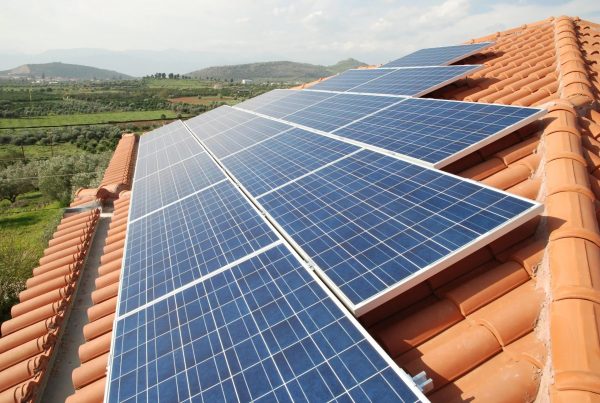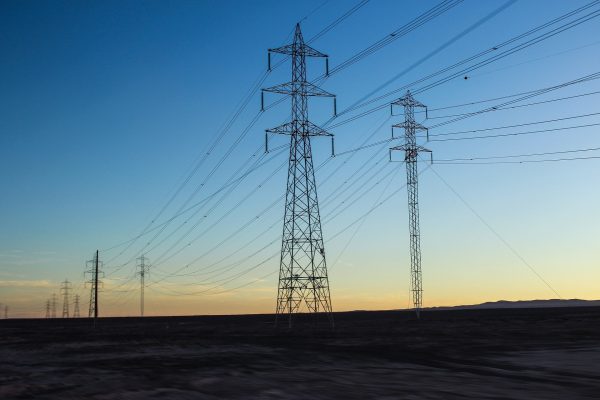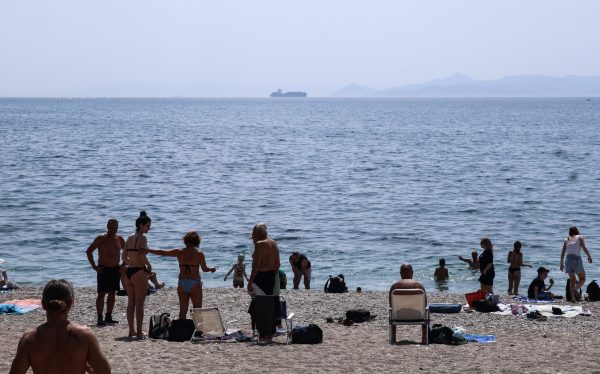
Greece occupies the tenth place in the list of the top 10 countries in the world in terms of photovoltaic power per inhabitant. Based on 2022 data, first is Australia with 1,191 watts per inhabitant, second is the Netherlands with 1,029 watts per inhabitant, third is Germany with 815 watts per inhabitant, followed by Denmark (713 watts per inhabitant), Japan (677 watts per capita), Belgium (667 watts per capita), Estonia (601 watts per capita), Spain (572 watts per capita), Switzerland (535 watts per capita) and Greece (531 watts per capita).
This is according to the latest edition of SolarPower Europe’s Global Market Outlook 2023-2027, which was presented during Intersolar Europe taking place these days in Munich, Germany. Especially, for rooftop photovoltaics, six countries including Greece (Denmark, India, Austria, China, Greece and South Africa) showed growth rates exceeding 50% last year.
Globally rooftop solar increased from 79 GW (gigawatts) in 2021 to 118 GW in 2022. For 2023 SolarPower Europe predicts growth of 35% with an expected addition of 159 GW while for 2024 the number may rise to 183 GW and potentially reaching 268 GW by 2027 (under the medium scenario).
Record year in 2022
In total, 239 GW of new solar parks of all sizes were installed worldwide in 2022, equivalent to an annual growth rate of 45% (highest since 2016). In fact, 49.5% of the new capacity was rooftop photovoltaics. In Brazil, Italy and Spain installed capacity increased by 193%, 127% and 105%, respectively.
Overall, last year was another record year for solar power, led once again by China, which added nearly 100 GW in just one year, a growth rate of 72%. The United States retained second place with 21.9 GW, followed by India with 17.4 GW and Brazil with 10.9 GW. Spain was the largest PV market in Europe with 8.4 GW.
In addition to the top five countries, another 21 countries added more than 1 GW of solar power each by 2022. Rounding out the top ten are Germany, Japan, Poland, the Netherlands and Australia, followed by South Korea, Italy, France, Taiwan, Chile, Denmark, Turkey, Greece, South Africa, Austria, United Kingdom, Mexico, Hungary, Pakistan, Israel and Switzerland.
Forecasts for the coming years
According to SolarPower in 2023 341 GW to 402 GW of solar power is expected to be installed worldwide, in 2027 it may reach 800 GW while by 2030 it is estimated that around 1 TW of solar power may be installed annually. At the end of 2022 the total installed solar capacity, across the planet, reached almost 1.2 TW (terawatts).
For this year, countries expected to contribute to the further development of solar energy projects include Poland, the Netherlands, France, Greece, Austria, Belgium, Hungary and Sweden. As for the period 2023-2027, Greece is in 17th place among the 20 countries that will contribute the most to the development of photovoltaics.
The Greek market
In 2022, 1,362 GW of new photovoltaic projects were connected to the grid, bringing the solar capacity in Greece to 5.5 GW. However, according to data provided by the policy advisor of the Association of Photovoltaic Companies (SEF), Mr. Stelios Psomas, the expected performance of the market in 2023 is expected to be even more impressive as new solar capacity of around 2 GW is estimated.
Once again, in 2022, the market was dominated by medium-sized projects between 10 kW and 1,000 kW. Also, solar energy accounted for 13.5% of electricity generation in 2022. The really good news, according to Mr. Psomas, comes from self-consumption. For the first time, installations in 2022 exceeded the 100 MW milestone (110.8 MW connected to the grid in 2022) and 2023 is expected to be another record year for self-consumption systems, with the market expected to triple.
In terms of support programs, approximately 4.1 GW of RES projects will be auctioned in Greece between 2023 and 2025, with photovoltaics expected to secure approximately 3 GW. In addition, as estimated, the corporate bilateral power purchase contracts (PPAs) will take off, while their support scheme (Green Pool) has been sent by the Ministry of Foreign Affairs to the Commission for approval.
Latest News

Two Greek Beaches in Top 50 in the World
Both Greek beaches were on the list of the best beaches in Europe too

Eurostat: Greece 20th out of 26 European States in Hourly Average Wage
According to figures released by Eurostat, the Benelux Grand Duchy of Luxembourg, one of Europe’s hubs for finance, is in first place

Greek Property Renovation Surge amid Economic Constraints
This has led to a notable escalation in renovation costs, with average prices per square meter exceeding previous norms and reaching even 1,000 euros in premium locations

RRF: Additional €5.1bln Funds for Subsidies to Greece in 2025
By April 22, funds totaling 5.75 billion euros had been transferred for approved projects of the Recovery Fund to entities within and outside the general government and final recipients

OECD: Greek Economy Resilient with 2% Growth Forecast for 2024
However, the OECD highlights challenges including the need to enhance productivity and fiscal adjustment due to high debt levels.

Challenges and Delays in Greece’s Hydrocarbon Exploration
Sources disclose that the petroleum companies holding the concessions are seeking partners to jointly invest and share the costs of exploration and drilling.

Greek Beach Visitors Can Report Violations on New ‘MyCoast’ App
Greek authorities hope the newly-launched, free ‘MyCoast’ app will help clamp down on public beach violations

BoG Figures Confirm Banner Year for Greek Tourism in 2023
20.6 billion euros in related revenues topped the previous year’s figure by 16.5%

Piraeus Bank to Propose First Dividend in 16 Years
Piraeus Bank has forecast profits of roughly 900 million euros this year, rising to one billion euros next year

Eurostat: Inflation in Greece Eases to 3.2% in April; 2.4% in Eurozone
The rate of increase for food prices was up by 4.9% in April 2024, compared to 4.8% in the previous month

















![Τουρισμός: Η Αθήνα στις 10 ελκυστικές ευρωπαϊκές πόλεις για ξενοδοχειακές επενδύσεις – Πού υστερεί η Θεσσαλονίκη [πίνακας]](https://www.ot.gr/wp-content/uploads/2022/08/hotel-g0908c6995_1920-90x90.jpg)
![Τουρισμός: Πόσα ξόδεψαν και πόσο έμειναν οι ξένοι επισκέπτες το 2023 [πίνακες]](https://www.ot.gr/wp-content/uploads/2024/02/ot_tourist_santorini2-90x90.png)

![ΤτΕ: Το top10 των περιφερειών με τα περισσότερα τουριστικά έσοδα [πίνακες]](https://www.ot.gr/wp-content/uploads/2024/04/02tourismos10-1-90x90.jpg)






















 Αριθμός Πιστοποίησης Μ.Η.Τ.232433
Αριθμός Πιστοποίησης Μ.Η.Τ.232433